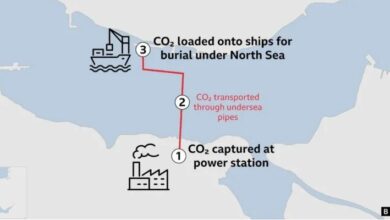Electric vehicles catch fire after being exposed to saltwater from Hurricane Idalia • Watts Up With That?

Essay by Eric Worrall
h/t James Stagg; The Idalia vehicles were apparently flooded with salt water. My question – could salt spray from a windy day at the beach also trigger a deadly battery fire?
Electric vehicles catch fire after being exposed to saltwater from Hurricane Idalia
“Saltwater exposure can trigger combustion in lithium-ion batteries. If possible, transfer your vehicle to higher ground,” the Palm Beach fire department wrote in a Facebook post.
Two electric vehicles in Palm Beach, Florida caught fire after being exposed to saltwater from Hurricane Idalia, according to reports.
Officials from the fire department said that both cars were Teslas and stated that the rechargeable car batteries might combust if exposed to saltwater.
“If you own a hybrid or electric vehicle that has come into contact with saltwater due to recent flooding within the last 24 hours, it is crucial to relocate the vehicle from your garage without delay,” the department wrote in a Facebook post. “Saltwater exposure can trigger combustion in lithium-ion batteries. If possible, transfer your vehicle to higher ground.”
The warning also extended to other vehicles with lithium-ion batteries such as electric golf carts, scooters and bicycles.
…
Obviously the lesson in the case of hurricanes, if you live somewhere which might be flooded, is move the electric vehicles outdoors, away from anything you care about. Of course, putting your vehicle in harms way might affect your insurance claim, so please get professional advice before acting on this suggestion.
What about lesser exposure to salt spray? For example, occasionally in Australia windy weather kicks up salt foam, which covers the foreshore, without the need for an actual hurricane or cyclone.
Even when you don’t have something as obvious as salt foam, anything parked near the sea on a windy day gets exposed to a continuous, penetrating, near invisible spray of salt. On windy days, after parking by the sea, you usually have to use the windscreen washer to clean off the layer of salt before driving the vehicle.
I don’t know if that penetrating salt spray can wreak the same damage as floodwater. Maybe it just takes longer. But this is certainly a question I would be asking myself, if I owned an electric vehicle.
Even away from the ocean there are weather phenomena which could cause an accumulation of salt on vital engine components. A lot of desert environments, the dust contains significant amounts of salt. That dust gets in everywhere.
Salt buildup could be an explanation for some of the spontaneous combustion electric vehicle disasters we’ve seen over the years. The salt could slowly accumulate in layers on critical electrical components of the vehicle, until one day, when atmospheric conditions are just right, moisture causes the salt layer coating the vehicle components to become electrically conducting, a short circuit forms, and the electric vehicle catches fire and explodes.
For more information about some of the bad things which can happen to electric vehicles, and why they are bad for the environment, click here.




